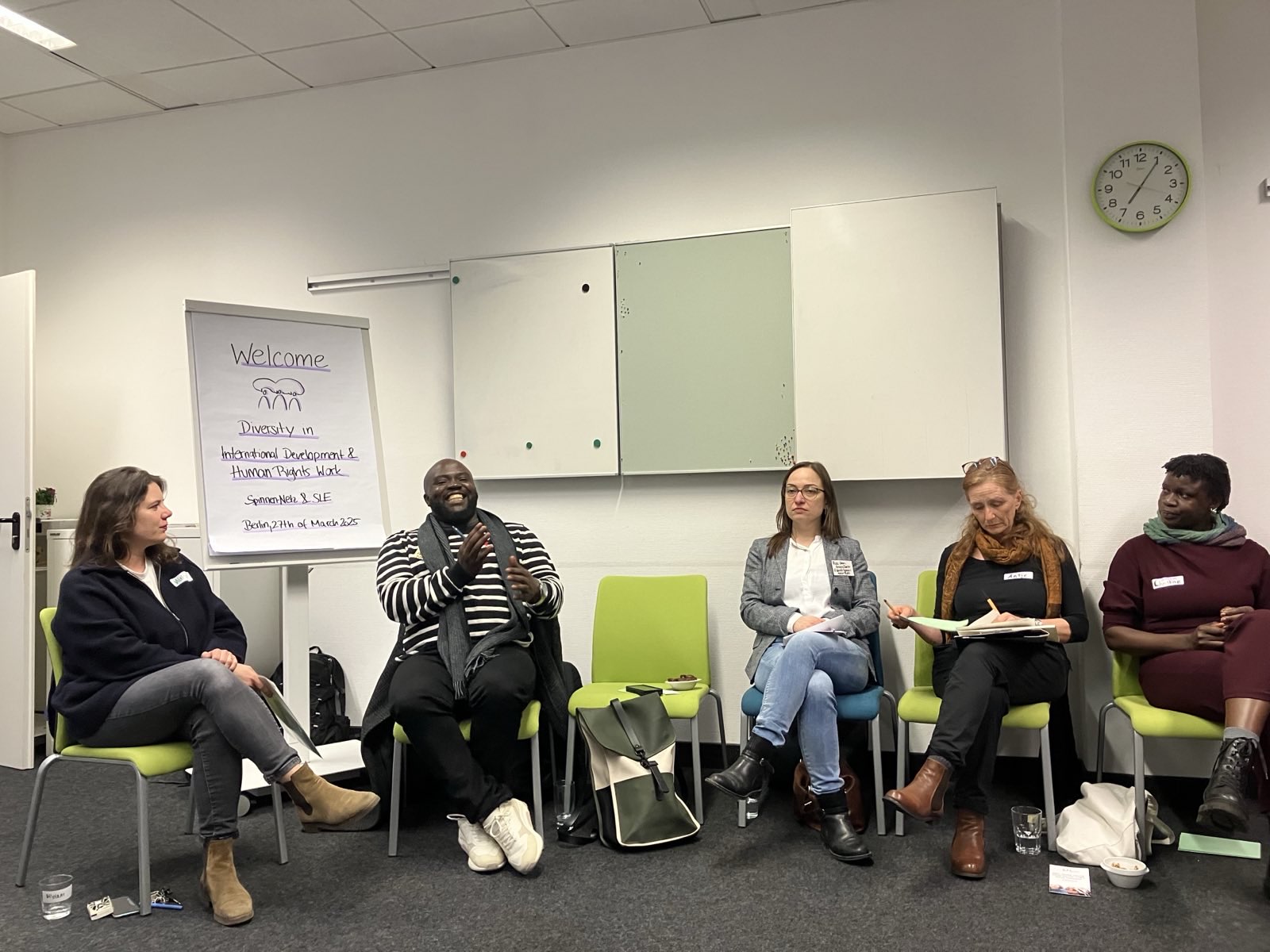Spannend und anregend war es mit den drei Impulsgebenden und 25 Teilnehmenden vom SLE (https://www.sle-berlin.de) und dem Spinnen-Netz ArbeitMitWirkung (www.spinnen-netz.de) über die Rolle von Diversität in der Entwicklungszusammenarbeit und Menschenrechtsarbeit zu diskutieren.
Ihre Erfahrungen mit und Perspektiven auf das Diversitätsthema teilten:
- Rosa Öktem, Geschäftsführerin vom Deutschen Institut für Menschenrechte (www.institut-fuer-menschenrechte.de)
- Valerie Viban, Referent Antirassismus Arbeit und Dekolinialisierungsarbeit bei Brot für die Welt/EWDE (www.brot-fuer-diewelt.de und)
- Sohal Behmanesh, freie Organisationsentwicklerin (www.coform-consulting.de)
Es ging u.a. um anonymisierte Bewerbungsprozesse und wie sich dies sich positiv auf die Erhöhung der Diversität auswirkt. Und dann aber auch um die Perspektive, dass sich an strukturellen Machtverhältnissen nicht alles sofort/ wenig ändert, wenn eine Organisation zwar ihre Teams der neu einsteigenden Mitarbeitenden diverser gestaltet aber Führungspositionen schwer für z.B. BI-PoCs zugänglich sind und oder auch die Instrumente und Perspektiven weiterhin von einem Machtgefälle oder postkolonialen Strukturen geprägt sind.
Zudem gingen wir der These nach, dass es bei Diversität nicht um die Frage der:s Anderen geht, sondern vor allem um einen selbst. Und dass wir die Aufgabe haben, zu überprüfen, wo unser Handeln von weißen und kolonialen Denk- und Handlungsmustern geprägt sind (z.B. die Gewohnheit, Definitionshoheit zu haben etc.) und wie wir uns davon lösen können.
Danke an Miriam, Rosa, Valerie und Sohal und Eva, Rabir und alle andern Mitgestaltenden und Diskutierenden.
+++
Yesterday, it was exciting to discuss the role of diversity in development cooperation and human rights work with the three keynote speakers and 25 participants from SLE (https://www.sle-berlin.de) and the Spinnen-Netz ArbeitMitWirkung.
Their experiences with and perspectives on the topic of diversity were shared by
- Rosa Öktem, Managing Director of the German Institute for Human Rights (www.institut-fuer-menschenrechte.de)
- Valerie Viban, Consultant for anti-racism and decolonialisation work at Bread for the World/EWDE (www.brot-fuer-die welt.de)
- Sohal Behmanesh, freelance organisational developer (www.coform-consulting.de)
One of the topics discussed was anonymised application processes and how this has a positive impact on increasing diversity. And then also the perspective that structural power relations do not change immediately or very little if an organisation makes its teams of new employees more diverse but management positions are difficult to access for BI-PoCs, for example, and the tools and perspectives are still characterised by a power imbalance or post-colonial structures.
We also explored the theory that diversity is not about the question of others, but primarily about oneself. And one of the speaker reflected also, that we have the task of examining where our actions are characterised by white and colonial patterns of thought and action (e.g. the habit of having the power of definition etc.) and how we can free ourselves from them.
A big Thankyou goes to Rosa, Valerie und Sohal and also Miriam for hosting us and Eva, Rabir and all guests.




 teilen
teilen